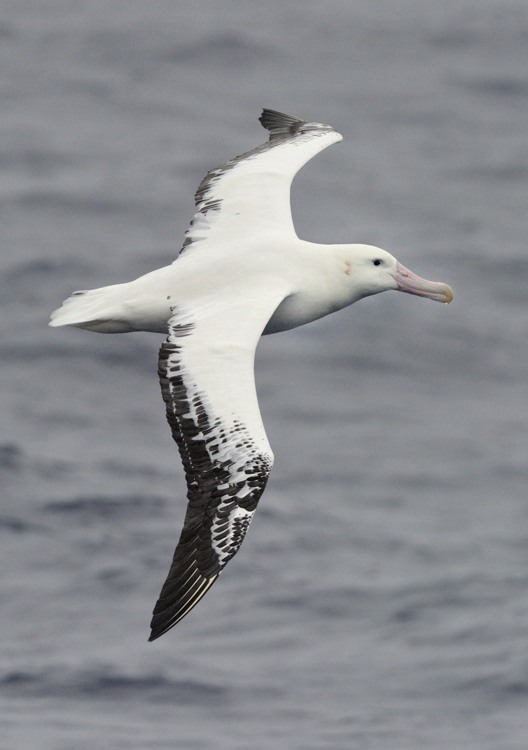Alexandre Corbeau (Centre d’Études Biologiques de Chizé, Villiers en Bois, France) and colleagues have published open access in the journal PLoS ONE on using GPS loggers on globally Vulnerable Wandering Albatrosses Diomedea exulans to detect fishing vessels via Radar.
The paper’s abstract follows:
“Seabirds are well known to be attracted by fishing boats to forage on offal and baits. We used recently developed loggers that record accurate GPS position and detect the presence of boats through their radar emissions to examine how albatrosses use Area Restricted Search (ARS) and if so, have specific ARS behaviours, when attending boats. As much as 78.5% of locations with a radar detection (contact with boat) during a trip occurred within ARS: 36.8% of all large-scale ARS (n = 212) and 14.7% of all small-scale ARS (n = 1476) were associated with the presence of a boat. During small-scale ARS, birds spent more time and had greater sinuosity during boat-associated ARS compared with other ARS that we considered natural. For, small-scale ARS associated with boats, those performed over shelves were longer in duration, had greater sinuosity, and birds spent more time sitting on water compared with oceanic ARS associated with boats. We also found that the proportion of small-scale ARS tend to be more frequently nested in larger-scale ARS was higher for birds associated with boats and that ARS behaviour differed between oceanic (tuna fisheries) and shelf-edge (mainly Patagonian toothfish fisheries) habitats. We suggest that, in seabird species attracted by boats, a significant amount of ARS behaviours are associated with boats, and that it is important to be able to separate ARS behaviours associated to boats from natural searching behaviours. Our study suggest that studying ARS characteristics should help attribute specific behaviours associated to the presence of boats and understand associated risks between fisheries.”

Wandering Albatross at sea, photograph by Kirk Zufelt
Reference:
Corbeau, A., Collet, J., Fontenille, M. & Weimerskirch, H. 2019. How do seabirds modify their search behaviour when encountering fishing boats? PLoS ONE 14(9): e0222615. doi.org/10.1371/journal.pone.0222615.
John Cooper, ACAP Information Officer, 15 October 2019

 English
English  Français
Français  Español
Español